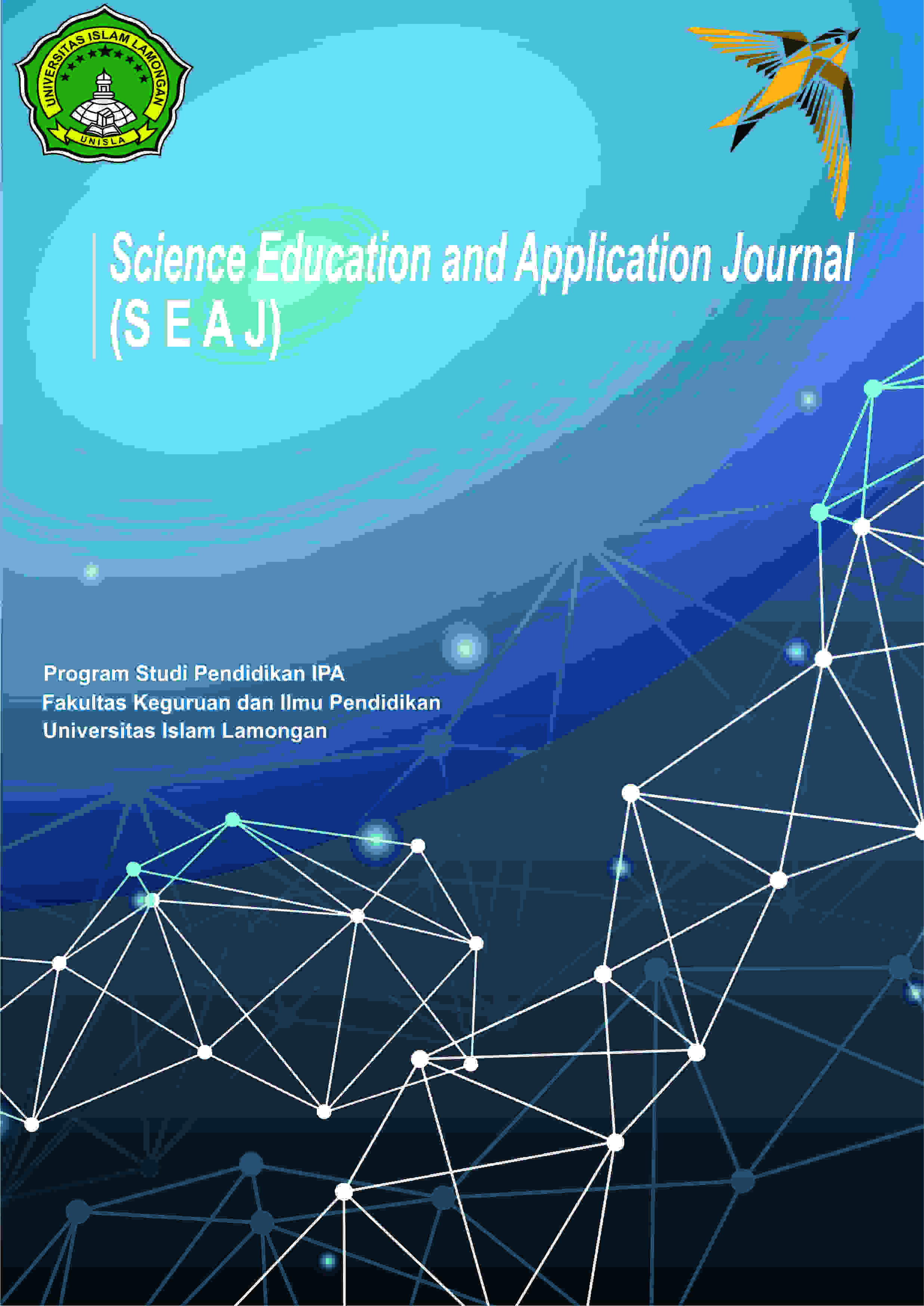ACTIVITIES ASSESSMENT AS A TOOL TO MEASURE STUDENTS’ OBSERVATION SKILLS IN SCIENCE LEARNING
DOI:
https://doi.org/10.30736/seaj.v1i1.94Keywords:
assessment, activity, observationAbstract
Observation skills are one of the basic skills students must possess in science learning. Through observation skills, students are able to identify facts or initial knowledge before going on to the next stage of the science process skills. In science learning, student observation skills can be observed and measured through all learning activities both in the classroom and in the laboratory (practicum) by using the activity assessment sheet. Activity assessment sheet is a derivative form of performance assessment consisting of 1) student identity, 2) assessment instructions, 3) basic competencies, 4) assessment table (sub-material, observed observation skills, scores, and information), 5) formulation acquisition of final score, and 6) assessment rubric. The assessment sheet for this activity has been tested on 44 junior high school students and the average results reached more than 50% of students showing the highest score of observation skills. Thus, the activity assessment sheet can be said to be used to measure student observation skills.Downloads
Download data is not yet available.
Downloads
Published
2019-04-09
How to Cite
Dewanti, B. A. (2019). ACTIVITIES ASSESSMENT AS A TOOL TO MEASURE STUDENTS’ OBSERVATION SKILLS IN SCIENCE LEARNING. Science Education and Application Journal, 1(1), 17–24. https://doi.org/10.30736/seaj.v1i1.94
Issue
Section
Artikel
License
Authors who publish with this journal agree to the following terms:
- Authors retain copyright and grant the journal right of first publication with the work simultaneously licensed under a Creative Commons Attribution-ShareAlike 4.0 International License that allows others to share the work with an acknowledgment of the work's authorship and initial publication in this journal.
- Authors are able to enter into separate, additional contractual arrangements for the non-exclusive distribution of the journal's published version of the work (e.g., post it to an institutional repository or publish it in a book), with an acknowledgment of its initial publication in this journal.
- Authors are permitted and encouraged to post their work online (e.g., in institutional repositories or on their website) prior to and during the submission process, as it can lead to productive exchanges, as well as earlier and greater citation of published work (See The Effect of Open Access).

This work is licensed under a Creative Commons Attribution-ShareAlike 4.0 International License.









